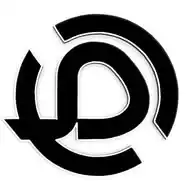
Madrasatuna
May 21, 2025 at 04:55 AM
BENEFIT 469: Responding to Evil: The Obligation of the Student of Knowledge
Shaykh Ibn Bāz (may Allāh have mercy on him) said: "Then the student of knowledge must be extremely keen not to conceal anything of what he has learned."
Sheikh Yusuf Al-Jazaa'iri comments: This is a precious statement, and we shall now reflect upon it. It is a valuable piece of advice from Imām Ibn Bāz (may Allāh have mercy on him) to the student of knowledge.
Sheikh ibn Baz: "He is keen to clarify the truth and to refute the opponents of the religion of Islam"
Commentary: Whether they are disbelievers, atheists, or people of innovation and misguided desires, or those characterized by wickedness. The adversaries of Islam vary in their hostility: {You will not find a people who believe in Allāh and the Last Day having affection for those who oppose Allāh and His Messenger} — each according to the nature and degree of his opposition and hostility.
Sheikh Ibn Baz: "He is not negligent nor withdrawn; rather, he is always present in the field of action to the best of his ability."
Commentary: A student of knowledge, even though he may not yet be a scholar, must not refrain from clarifying the truth and refuting falsehood. He bears responsibility for conveying the truth, but this is bound by his capacity and knowledge. He should not speak on matters beyond his understanding, but he must respond to the people of falsehood and expose their misguidance. In some cases, if there are no scholars present in his locality, it may become incumbent upon him to act as a scholar, being a representative and inheritor of the scholars.
Sheikh Ibn Baz: "He does not withdraw but remains visible in the field of duty, to the extent of his ability. If the opponents of Islam begin to cast doubts and attack, he steps forward to respond—whether in writing, in speech, or by other means."
Commentary: This is a refutation of those who try to restrict the role of the student of knowledge, saying to him: “Do not respond, do not clarify the truth, do not refute the people of falsehood.” This is incorrect! Rather, the student is advised: “Clarify the truth, but do not exceed your limits. Speak with knowledge. If you have evidence, present it. If not, convey the statements of the scholars.” 📌
This is a great responsibility for the student of knowledge—that he spreads the words of the scholars and explains them to the people. Not everyone has the means to access the statements of scholars, so the student serves as a bridge between the scholars and the general public, delivering their words and teachings.
Sheikh Ibn Baz: "He steps forward to respond—in writing, speech, and other forms—and he does not show complacency or say: ‘This is for someone else to do.’"
Commentary: This is a serious error. Many people, upon witnessing falsehood, evil, or its propagation, excuse themselves by saying, “This is not my responsibility; I am not a scholar.” What is the result? Falsehood continues and spreads unchecked. This leads to greater harm than if he had spoken. No one is permitted to witness falsehood without clarifying the truth, but this must be done within the bounds of one’s knowledge and ability.
Sheikh Ibn Baz: "Rather, he should say: ‘I am responsible for this. I will address it. I will handle it.’"
Commentary: The student of knowledge must be in the front lines. Even if there are other scholars present, he should fear missing the opportunity to address the issue. Indeed, there may be scholars more knowledgeable than him, but as the scholars have stated:
“Delaying the clarification when there is a need is not permissible.” This is a principle. Not every falsehood requires waiting to consult scholars—if one possesses knowledge on the matter and has the evidence and proofs, then he is a representative of the scholars. He has not exceeded their boundaries but is conveying their message to the people and presenting the evidences while refuting falsehood.